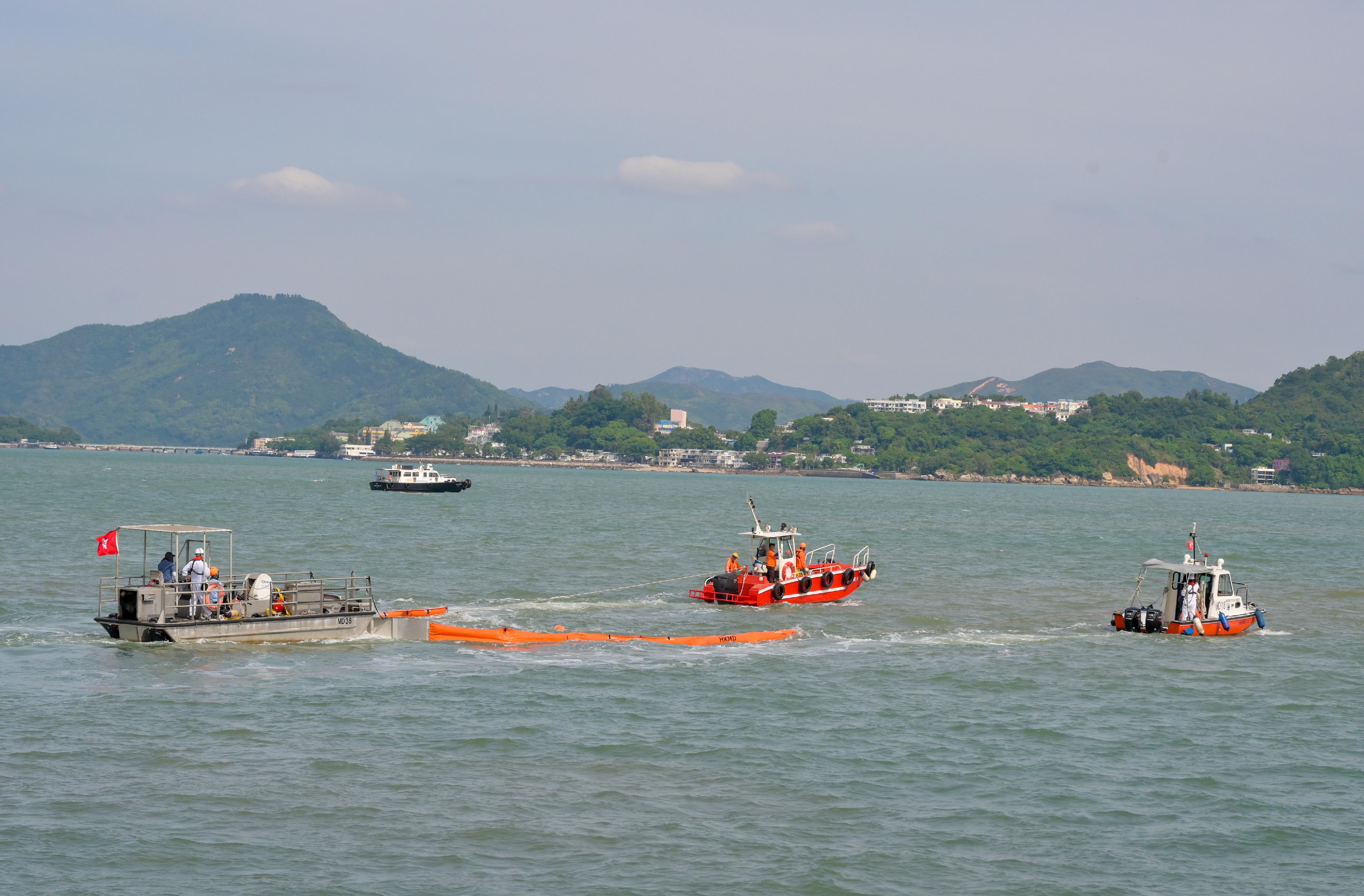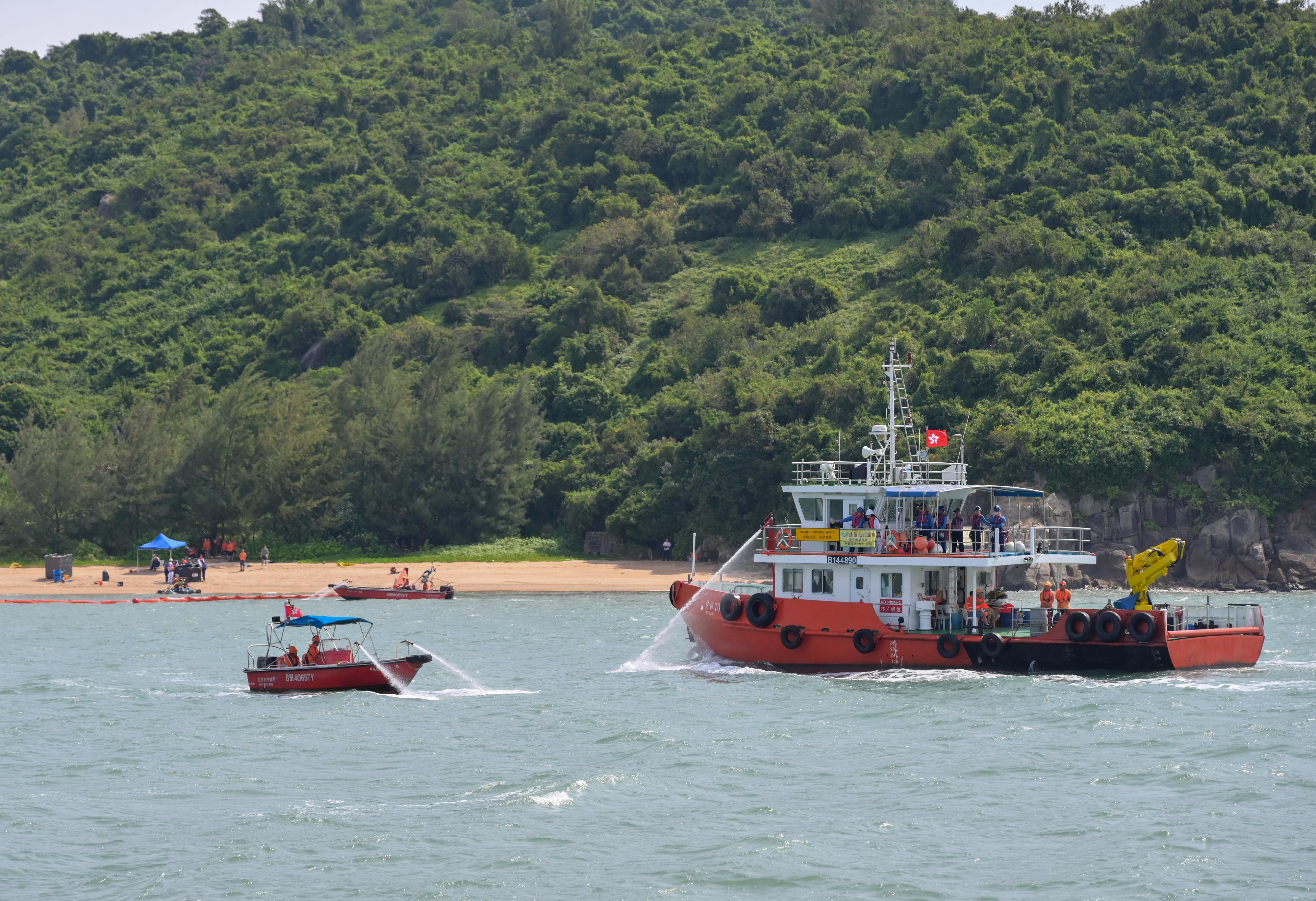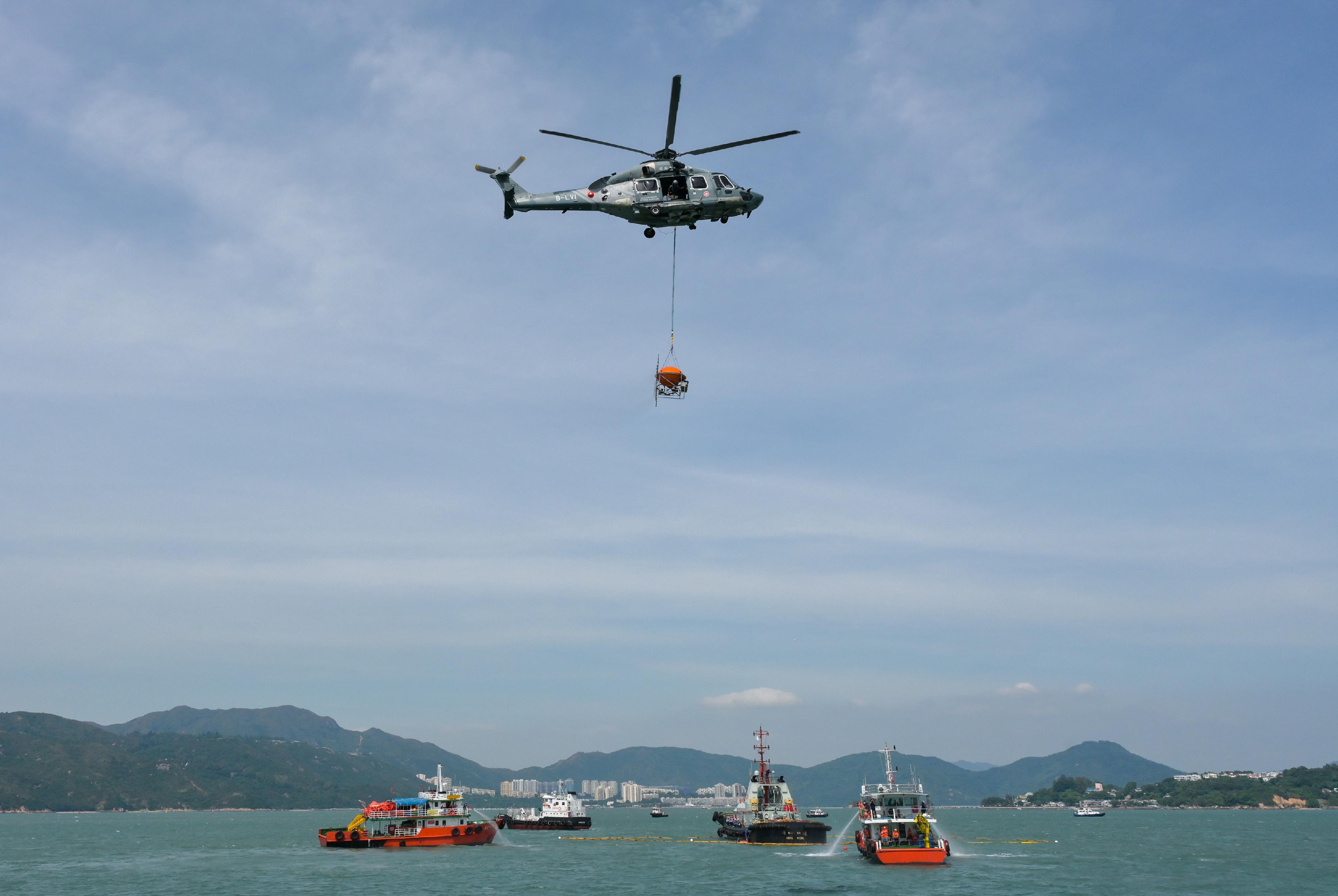Oilex and HNS exercises test marine pollution responses (with photos)
The annual marine pollution joint response exercises, code-named Oilex 2024 and Maritime Hazardous and Noxious Substances (HNS) 2024, were conducted by various government departments this morning (October 23) in the waters off Sunshine Island to test their marine pollution responses in the event of a spillage of oil and HNS in Hong Kong waters.
In the test scenario, an oil tanker collided with a container vessel, resulting in fuel oil spilling from the oil tanker, and five containers loaded with acetone falling overboard. Subsequently, an oil spill response team arrived at the scene and cleaned up the spilled oil on the sea surface. The Fire Services Department (FSD) and other response groups were also deployed at the scene to contain and handle the potential acetone spill as necessary to prevent threats to the nearby environment and facilities.
During the exercises, various participating parties carried out a series of simulated response actions. After the simulated oil spill, the oil tanker anchored to the west of Sunshine Island, while a salvage team transferred the fuel oil from the damaged tank and patched the leak to stop further oil spillage at the source. As well, an oil combat team deployed floating barrier booms to encircle the oil tanker and set up barrier booms in the vicinity to prevent the spill from spreading. The exercise also simulated the spraying of oil dispersant with water from pollution control vessels and a Government Flying Service (GFS) helicopter onto oil on the sea surface, as well as the use of oil skimmers and other equipment. Simultaneously, a shoreline cleaning team conducted a shoreline oil clean-up drill at a non-gazetted beach on Sunshine Island. In combating the simulated HNS spill, the response groups lifted the damaged containers out of the sea to stop the pollution at the source.
The joint response exercises were co-ordinated by the Marine Department and the Environmental Protection Department. The participating government departments and organisations included the FSD, the GFS, the Hong Kong Police Force, the Government Laboratory and the Civil Aid Service, as well as several oil companies and a pollution control company jointly formed by them.
The response exercises not only provided hands-on experience for response members, but also helped relevant parties to adopt an effective emergency response strategy for preventing pollution according to the properties and extents of spilled substances.


